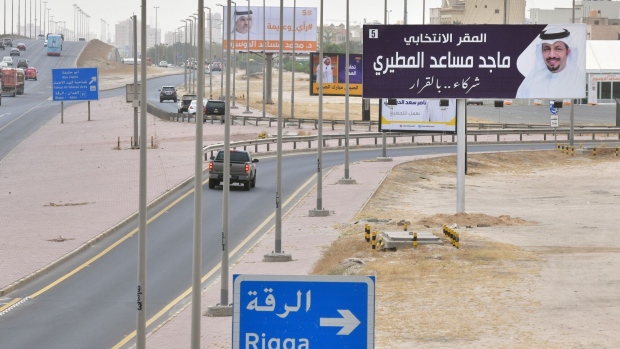Jun 5, 2023
Kuwait Holds Third Election in Three Years Amid Political Deadlock
, Bloomberg News

(Bloomberg) -- Kuwaitis vote for the third time in less than three years Tuesday, in a parliamentary election overshadowed by disillusionment with a political standoff that’s stymied policy-making in the OPEC member.
Some 793,000 Kuwaitis, around half of the citizen population, are eligible to choose from 207 candidates, including 13 women, vying for the National Assembly’s 50 seats. It’s the lowest number of candidates since the 1996 polls.
Efforts to diversify Kuwait’s oil-dependent economy have been stuck for years as governments appointed by the ruling Al-Sabah family face off with lawmakers who have just enough power to probe, block legislation and unseat ministers.
Repeated elections have done little to end the deadlock, undermining confidence in the political system. This year’s polls have also been eclipsed by internal conflict among senior political powers. They take place as summer vacations begin and temperatures soar above 40C, which could further affect turnout.
Read More: Oil Money Can’t Buy Progress for Gulf’s Laggard State Kuwait
Kuwait’s leadership dissolved parliament in April after the constitutional court annulled the results of an election held six months earlier. It reinstated lawmakers elected in 2020, but they were promptly sent home too.
Crown Prince Sheikh Meshal Al-Ahmad Al-Sabah, who has been running the country’s day-to-day affairs since the ailing ruler largely withdrew from the public eye, promised in April a number of political and legal reforms.
“True and lasting change is overdue,” said Bader Al-Saif, an assistant professor of history at Kuwait University. “An election that follows the same manual will not lead to that.”
©2023 Bloomberg L.P.







